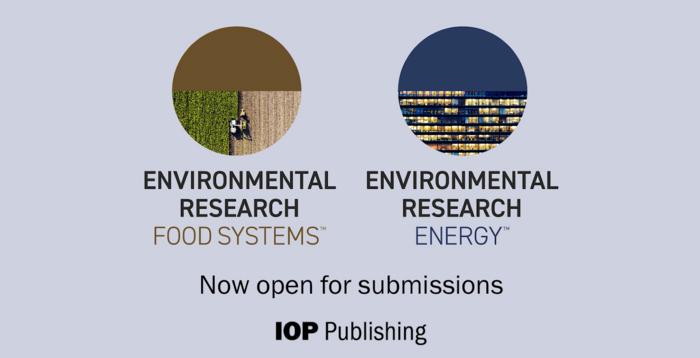
Credit: IOP Publishing
IOP Publishing’s (IOPP) new environmental research journals are now open for submissions. Announced earlier this year, the two new open access (OA) journals: Environmental Research: Energy and Environmental Research: Food Systems are the latest additions to IOPP’s expanding Environmental Research Series which now includes eight open access titles.
IOPP’s Environmental Research series builds on the established reputation of the journal Environmental Research Letters (ERL) and shares the same outstanding levels of author service, inclusive editorial policies, strict quality assurance and has open science principles at its core.
IOP Publishing will waive all OA article publication charges (APCs) for manuscripts submitted to the journals before 2025. Launched in response to growing demand from their research communities, and aligned with several of the UN’s Sustainable Development Goals (SDGs), all content will be published OA to remove barriers for all readers and deliver maximum visibility and dissemination for authors and their work. IOPP data shows that content published OA is downloaded 81% more than paywalled content and cited 31% more, demonstrating the substantial benefits to publishing OA.
Dr Tim Smith, Head of Portfolio Development at IOP Publishing, said: “As the body of essential environmental research increases, researchers want to know that their work is having the greatest impact and reaching the widest audience possible. The new titles will be part of our Environmental Research series of Open Access journals, and we look forward to publishing content which delivers significant benefits for our authors and the wider community, creating forums that lead to enhanced collaboration, maximum multidisciplinary reach and the opportunity to shape policies that ultimately drive positive global change for our planet.”
In the spirit of transparency and reproducibility, all authors publishing in the journals are encouraged to share data and code where appropriate for the benefit of the research community. The journals also apply double anonymous and transparent peer review and reviewers can invite a colleague to review with them under the newly introduced co-review policy.




